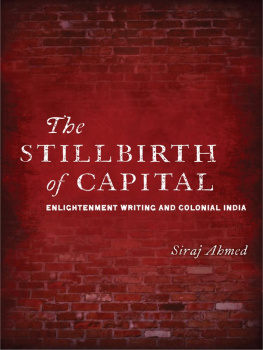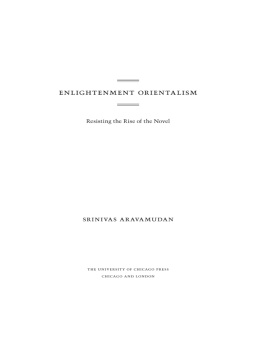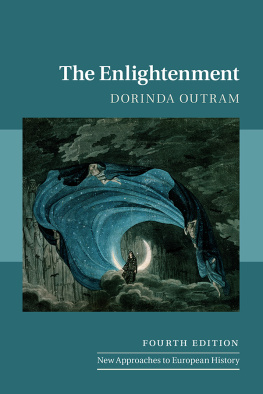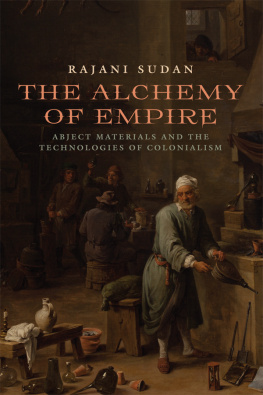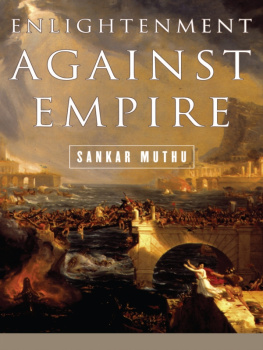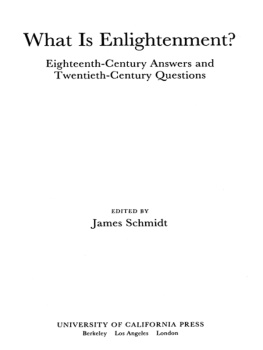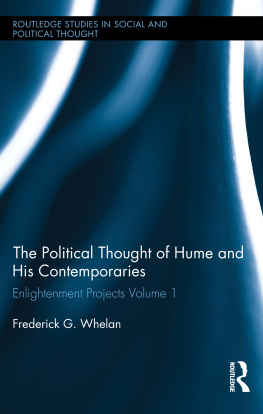THE STILLBIRTH OF CAPITAL
THE STILLBIRTH OF CAPITAL
Enlightenment Writing and Colonial India
SIRAJ AHMED

Stanford University Press
Stanford, California
2012 by the Board of Trustees of the Leland Stanford Junior University.
All rights reserved.
This book has been published with the assistance of the Mount Holyoke College Dean of Faculty Office.
No part of this book may be reproduced or transmitted in any form or by any means, electronic or mechanical, including photocopying and recording, or in any information storage or retrieval system without the prior written permission of Stanford University Press.
Printed in the United States of America on acid-free, archival-quality paper
Library of Congress Cataloging-in-Publication Data
Ahmed, Siraj Dean, author.
The stillbirth of capital : Enlightenment writing and colonial India / Siraj Ahmed.
pages cm
Includes bibliographical references and index.
ISBN 978-0-8047-7522-9 (cloth : alk. paper)ISBN 978-0-8047-7523-6 (pbk. : alk. paper)
1. English literature18th centuryHistory and criticism. 2. IndiaIn literature. 3. Colonies in literature. 4. Enlightenment. 5. Great BritainColoniesAsiaHistory. 6. IndiaHistoryBritish occupation, 17651947. I. Title.
PR448.1534A36 2012
820.9005dc22
2011012292
Typeset by Bruce Lundquist in 10/15 Minion.
E-book ISBN: 978-0-8047-7811-4
For Muthu Beevi Fathima and Syed Kader Ahmed
ACKNOWLEDGMENTS
I have dedicated this book to my parents, whose lives have involved dislocations more painful than I can even imagine and sacrifices more profound than I could ever perform.
My oldest debt is to David McWhirter, whom I turn to still and admire more than ever.
David Kastan, Mike Seidel, and Jim Basker have been unfailingly generous and astute.
Because of its source, Jonathan Lambs encouragement over the years has meant the world to me.
Sanjay Krishnans brilliance and sensitivity provide modelswhich I recall almost dailyof how to think and live in this confused time.
Nigel Alderman and Stanfords readers, Suvir Kaul and Ala Alryyes, read a long manuscript with exceptional care and skill when their own obligations must have left them little time to do so.
Emily-Jane Cohen guided this book through the stages of publication with enthusiasm, kindness, and expert judgment. Carolyn Brown, Rob Ehle, Nick Koenig, Cynthia Lindlof, and Sarah Crane Newman were equally adept.
Yashi Ahmeds compassion, counsel, and gentle prodding have routinely saved me.
Many others have helped me, often with extraordinary selflessness, during the time I worked on this book: John Archer, Sulochana Asirvatham, Carlos Austin, Moustafa Bayoumi, Renee Bergland, Watson Brown, Eric Bulson, Daniel Carey, Ruchi Chaturvedi, Joan Cocks, Justin Crumbaugh, Iyko Day, Rohan Deb Roy, Frances Dickey, Michael Dodson, Susan Egenolf, Marian Eide, Margaret Ezell, Karen Fernandes, Lynn Festa, Durba Ghosh, Carol Howard, Steven Leslie, Vicki Mahaffey, Howard Marchitello, Pam Matthews, Susanne Mrozik, Ilaria Natali, Max Novak, Mary Ann OFarrell, Suneeta Peres da Costa, Claudio Pikielny, Karen Remmler, Larry Reynolds, Victoria Rosner, Ahmed Salahuddin, Sejal Shah, Bob Shandley, Shabnum Tejani, Robert Travers, Gauri Viswanathan, Milind Wakankar, Tim Watson, Ronaldo Wilson, and Wes Yu.
Three people who inspired me are no longer here. Edward Said treated every encounter as a challenge; I had hoped to write a book worth his precious time. Karl Kroeber died as fearlessly as he lived; I wish I could hear his voice again. Omar Azfar taught everyone around him how to play and in doing so lived as intensely as anyone I have known.
I have benefited from the opportunity to present my work at the University of London School of Advanced Study; the Yale University Paul Mellon Centre; University of California, Berkeley; University of California, Los Angeles; University of California, Santa Barbara; Indiana University; Vanderbilt University; Georgetown University; and University of Crdoba.
I could not have completed this book without fellowships from the National Endowment for the Humanities, the Mellon and the Whiting Foundations, the Huntington and the Clark Libraries, and the University of London Institutes of Commonwealth and of English Studies.
An earlier version of was published in The Postcolonial Enlightenment: Eighteenth-Century Colonialism and Postcolonial Theory, ed. Daniel Carey and Lynn Festa (Oxford University Press, 2009). I thank the editors for permission to rework these articles.
From the moment I met her, Anjuli has made me feel part of a life much deeper than this one. The way she lives reminds mein the words of the postcard above her deskthat your heart is a muscle the size of your fist: in this world, love demands a fight.
THE STILLBIRTH OF CAPITAL
INTRODUCTION
The Enlightenment and Colonial India
For more than two decades, the main lines of scholarship in eighteenth-century and postcolonial studies have presupposed that the Enlightenment provided European imperialism its intellectual foundation. The widely accepted view in these fields is that eighteenth-century writers believed their political and social ideals to be universally valid and hence justified the imposition of European rule across the globe. An irony of this shared presupposition is that neither field has paid much attention to how eighteenth-century texts actually represent the material history of colonialism. This book examines a body of literature that no single study has yet considered: writing about the origins of British rule in India, ca. 16701815. It argues that far from justifying colonialism, this literature articulates a historical vision so deeply critical that it calls our own theoretical paradigms into question.
Recent works by Suleri, Teltscher, and Raman study British literary representations of the colonial encounter in order to delineate the rhetoric of English India. But in either case, these works identify the texts they examine with versions of European modernitywhether imperial or emancipatorythat are already familiar to us. They do not explore how these texts force us to rethink our very concept of modernity. In fact, the Enlightenment understanding of colonial history not only differs from our own but also incriminates the world we inhabit even more profoundly than it does the eighteenth century. The subject of this study is, in short, neither British Orientalism nor Enlightenment anti-imperialism but rather the literary and philosophical consequences of this understanding.
The period in question here coincides not only with the Enlightenment but also with the mercantile era, and the texts I treat are correspondingly saturated with references to the historical constitution of the global economy. These references refute commonplace ideas about the Enlightenment; they represent European rule not in terms of historical progress but rather in terms of its antitheses: war, economic ruin, and political degeneration. They point, ultimately, to the alliance between militarized states and monopoly corporations that lies at the origins of the global economy, and they register in exceptionally precise ways the reorientation of Indian Ocean trade toward this alliances spiraling military expenditures and war debts. Rather than suggest that British colonialism lifted non-European societies into a higher historical stage, these texts recognize that the Indian Oceans already flourishing economies financed Europes bankrupt form of sovereign power. They contain, therefore, a more heterodox sense of the global economys origins than prevailing concepts of the Enlightenment acknowledge.
Next page
